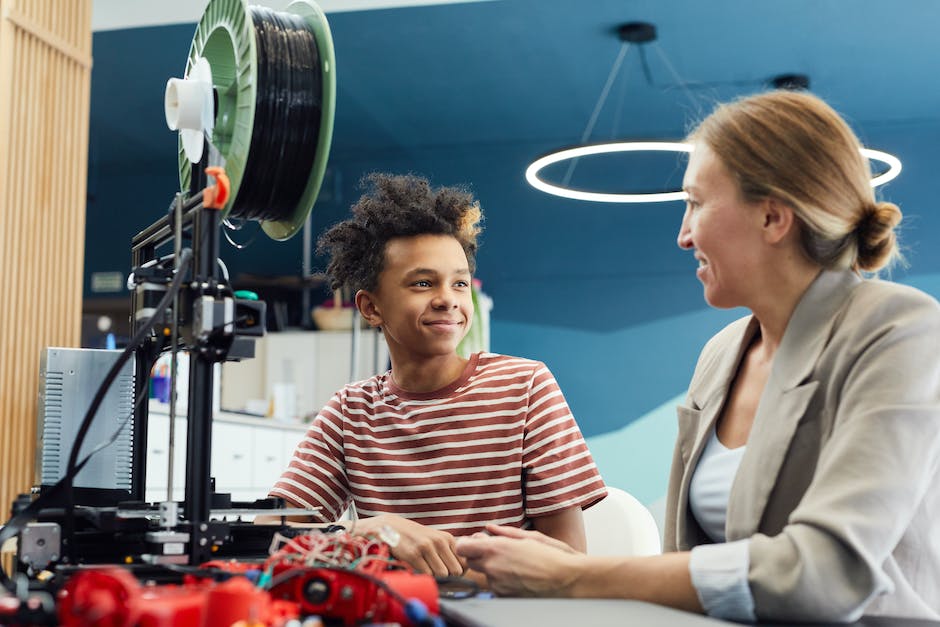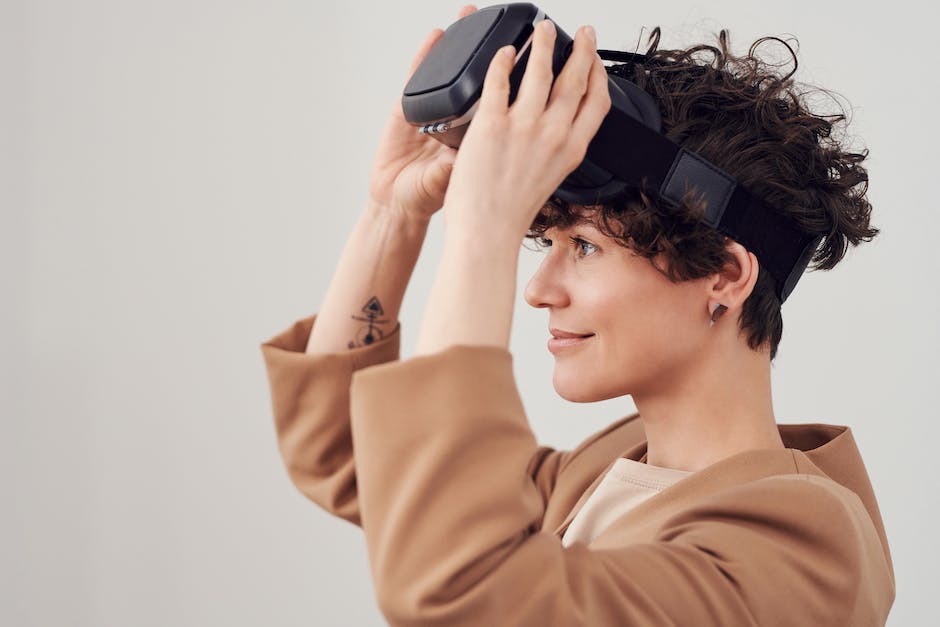As we propel ourselves further into the realm of the digital age, the role of technology in our daily lives is rapidly expanding. It is no longer an understatement to say that our modern society is highly dependent on advancements in technology. This evolution has brought about exciting possibilities in business, healthcare, communication and numerous other sectors. However, it has also fostered concerns related to privacy, employment and other crucial aspects. In this blog post, we’ll delve deeper into how technology is poised to shape our future. Throughout our journey into the future of technology, we’ll explore potential developments, impacts and the implications they may have on us.
The Influence of Artificial Intelligence and Robotics (How AI and robots can change work, health, and social interaction in the future)

In the realm of work, AI and robotics stand poised to revolutionize industries. Automation promises increased efficiency and productivity, but also forces us to reimagine traditional job roles. In healthcare, robotic surgeries and AI diagnosis could redefine patient care, potentially leading to higher precision treatment and improved recovery rates.
Social interactions will not be spared from this technology wave. AI could alter how we interact, opening up entirely new possibilities for virtual experiences. Imagine having intelligent conversations with AI-driven bots or branching out social networks using ai-driven avatars.
However, these advancements also raise concerns about data security, ethics, and the displacement of jobs. A thoughtful and balanced integration of AI and robots into society will, therefore, be essential as we navigate the future.
Breakthroughs in Biotechnology (Possible improvements in healthcare, food production, and environmental conservation)

As we dive deeper into the digital age, the world of biotechnology surfaces promising advances.
Picture a future where healthcare integrates AI technology, accurately predicting diseases even before symptoms occur. Pioneering genetic treatments could soon remedy previously untreatable conditions, increasing our lifespan and quality of life.
Biotech’s potential also extends to our plates. Innovations in food production like lab-grown meat and genetically modified crops promise a solution to the world’s growing food demand, while eliminating negative environmental impacts.
The environment stands to gain massively, too. Emerging research in bioremediation proposes using organisms to restore damaged natural sources, showing great promise in cost-effectively reducing industrial pollution.
With constant breakthroughs, biotechnology may well be the answer to some of the most pressing issues we face today and tomorrow. The future indeed looks promising with technology on our side.
The Future of Communication (Impact of technology on how we communicate and share information)

In the coming years, technology promises to revolutionize the way we communicate and share information.
Virtual Reality (VR) and Augmented Reality (AR) technologies are poised to create immersive communication environments, breaking down physical barriers and enabling more authentic interactions.
Artificial Intelligence (AI) and Machine Learning (ML) are set to refine our communication tools, with predictive text and voice recognition becoming even more sophisticated and intuitive.
Furthermore, the rise of 5G technology promises to make data sharing faster and more efficient, streamlining our interactions and collaborations.
Finally, emerging social media platforms will continue to morph how we express ourselves and connect with each other.
However, these advancements also breed new challenges related to privacy and security. As technology continues to evolve, it’s paramount that we adapt and learn to navigate these changes while protecting our digital selves.
Automation and Future Employment (How automation will shape the job landscape and economy)
As we step into the future, the influence of automation on employment is set to drastically change the landscape of jobs and economy. Artificial Intelligence and robotics are being integrated into the workforce, poised to automate many routine tasks.
While these advancements raise concerns about job losses and security, it’s also worth noting that new sectors and roles are emerging as a direct result of these technologies. Economists and industry experts argue that automation could indeed create more jobs than it replaces.
However, these changes call for a shift in skills amongst workers. As machines take over routinized jobs, the demand for creative, management, and technical skills is expected to rise. Embracing automation in the right way is the key to unlocking new avenues of employment and economic growth.
Future Education and E-learning (How technology can transform the way we learn and teach)

As we transcend into the future, technology’s influence on education is tremendous and transformative.
Imagine a classroom that isn’t confined by four walls but expands beyond continents and time zones. This vision is already a reality through E-learning platforms.
Technology not only modernizes the teaching landscape but also personalizes the learning experience. Online courses and digital resources provide the versatility to choose what to learn, when to learn, and at what pace.
In the coming years, AI and VR will play a significant role in education. AI can facilitate personalized learning paths while VR could offer immersive and interactive experiences, recreating a classroom setting virtually.
The traditional chalk-and-blackboard teaching method will likely be a thing of the past soon, replaced by more dynamic and inclusive learning vehicles powered by technology. Let’s prepare ourselves to welcome this promising, technology-driven educational paradigm.
The Internet of Things (IoT) and Smart Cities (How interconnectivity can streamline services and improve urban living)

The Internet of Things (IoT) is revolutionizing our cities, creating digital ecosystems known as Smart Cities.
These live networks of interconnected devices and systems are designed to streamline and optimize the city’s infrastructure, utilities, and services. For instance, IoT-enabled devices in places like traffic junctions and waste bins can automate processes, reducing human error and substantially cutting down on waste.
Furthermore, through data collection and analysis, Smart Cities can identify trends and obtain insights that will drive proactive actions such as preventive maintenance of utilities, traffic management, and energy management.
The citizens of a Smart City stand to benefit from high-efficiency services, prompt responsive actions to breakdowns, and smarter decision making that prioritizes needs.
As we march into the future, the fusion of IoT and our cities is transforming urban living into an increasingly efficient, sustainable, and enjoyable experience.
Technological Innovations in Transportation (Emergence of autonomous vehicles, improving public transit, and reducing carbon footprint)

As we look towards the future, one segment set for significant transformation by technology is transportation.
Imagine a world where autonomous vehicles rule the roads. With breakthroughs in Artificial Intelligence, this could soon become reality. Self-driving cars promise not only convenience but also increased safety by eliminating human error.
Further advancements are aiming at improving public transport. Think smart transit systems that run efficiently, reducing waiting time and overcrowding. Locations with sparse bus or train services could soon have seamless transit solutions.
Lastly, technology is playing a critical role in addressing one of our biggest existential threats – climate change. Innovations geared towards reducing carbon footprint, such as electric vehicles and better fuel efficiency, are set to redefine our commuting experience.
In essence, the future of transportation through technology promises less congestion, fewer accidents, enhanced accessibility, and a cleaner, greener planet.
Ethical Questions and Concerns (How we address potential inequality, privacy, and security issues arising from these advancements)

As we gallop towards an era of technological advancements, ethical concerns, too, gallop alongside. Have we considered the potential for inequality that might stem from this sweeping change? The forward march of technology might leave a segment of society behind, creating a digital divide.
How shall we address privacy breaches? With modern advancements come modern ways to compromise information security. Our personal, financial, and medical data sit on the precipice of being exploited.
Likewise, how do we ensure our security in this digital world? Cybercrimes have been on a steady rise, indicating the importance of safety measures.
We must grapple with these ethical conundrums, working tirelessly towards creating balanced, secure, and inclusive technology. The future can indeed be bright, but only if we shine a light on these concerns today.






